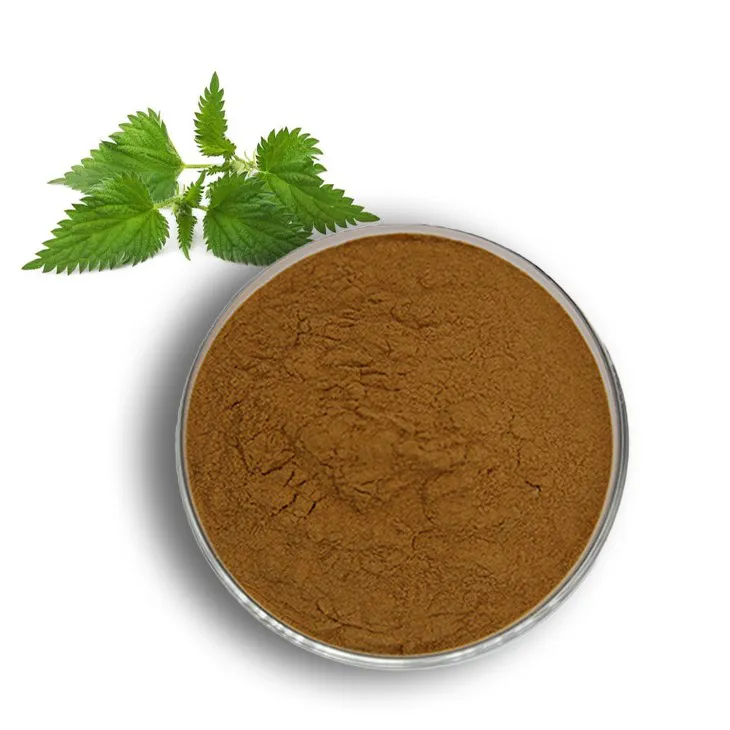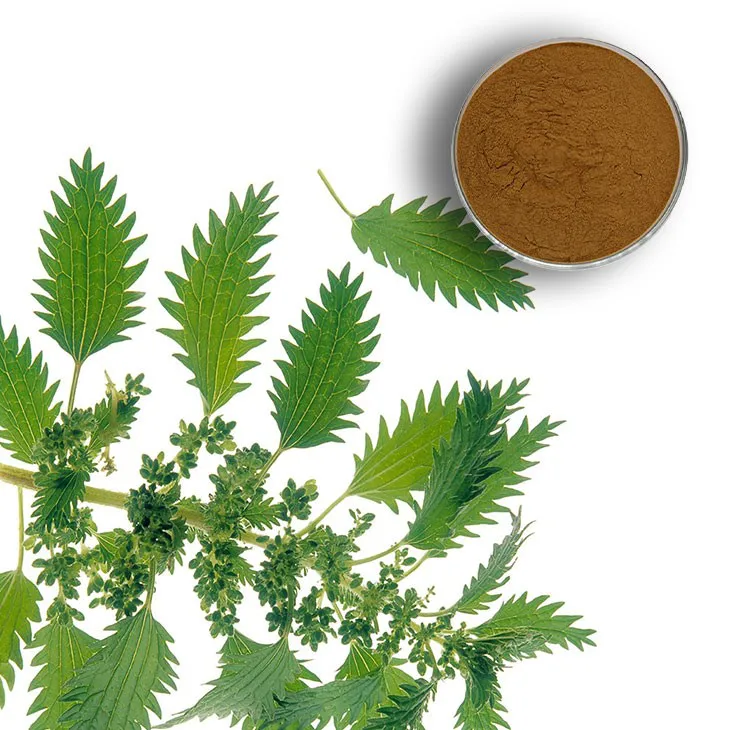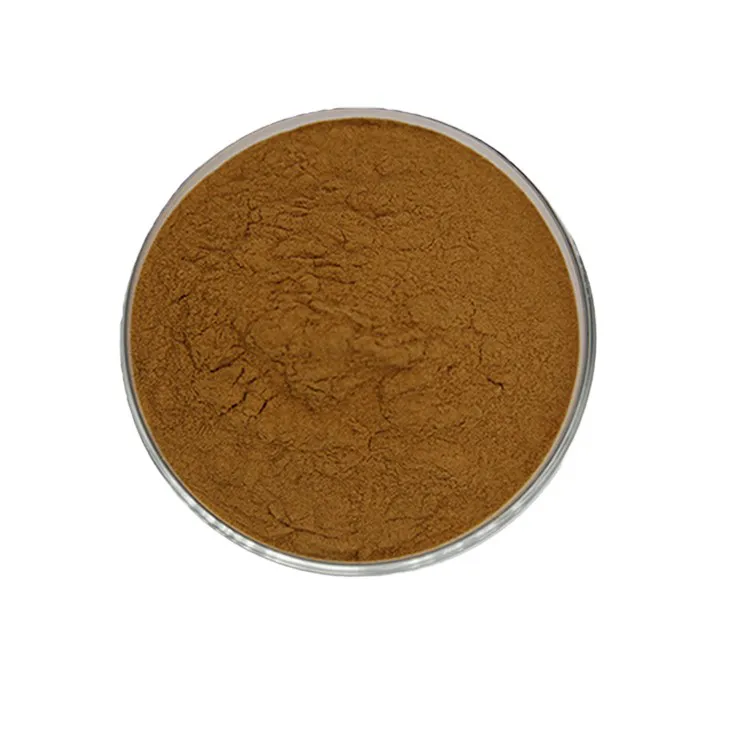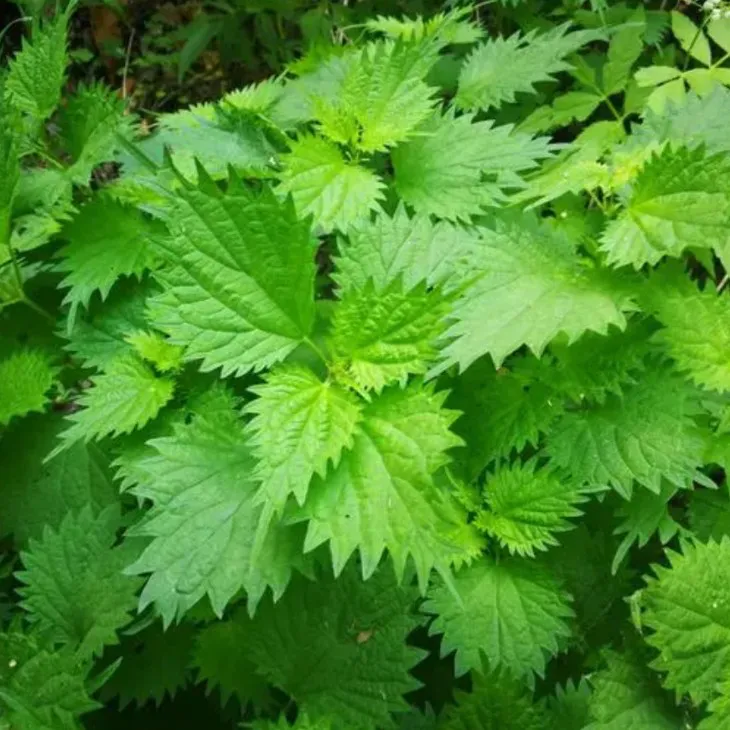- 0086-571-85302990
- sales@greenskybio.com
Nettle root extract manufacturer.
2024-11-27

1. Introduction to Nettle Root Extract Manufacturers
Nettle Root Extract manufacturers play a crucial role in the natural product industry. These manufacturers are responsible for the entire process, from sourcing the nettle roots to producing high - quality extracts that meet strict regulatory requirements. They are at the forefront of the industry, constantly exploring new ways to improve the quality and effectiveness of their products.

2. Sourcing of Nettle Roots
Sourcing the nettle roots is the first and very important step for Nettle Root Extract manufacturers. Nettle plants are known to grow in various environments, but manufacturers often look for those growing in pristine environments. This is because nettle roots from such areas are more likely to have a higher level of purity and potency.
When sourcing nettle roots, manufacturers need to consider several factors:
- Quality of the soil: Nettle plants thrive in well - drained, fertile soil. Roots from plants grown in nutrient - rich soil are likely to be more robust and contain a higher concentration of beneficial compounds.
- Absence of contaminants: Pristine environments are less likely to be exposed to pollutants such as pesticides, heavy metals, and industrial waste. This ensures that the nettle roots are free from harmful substances that could affect the quality of the extract.
- Sustainable harvesting: Manufacturers also need to ensure that the harvesting of nettle roots is done in a sustainable manner. This means not over - harvesting from a single area, which could damage the local nettle population and the ecosystem in which it grows.

3. Extraction Methods
Once the nettle roots are collected, manufacturers utilize a variety of extraction methods to obtain the extract. These methods can range from traditional to modern techniques:
3.1 Traditional Solvent Extraction
Traditional solvent extraction has been used for a long time in the production of nettle root extract. In this method, a suitable solvent, such as ethanol or methanol, is used to dissolve the bioactive compounds present in the nettle roots. The process typically involves:
- Crushing or grinding the nettle roots: This increases the surface area of the roots, allowing for better interaction with the solvent.
- Soaking the roots in the solvent: The roots are soaked in the solvent for a specific period of time, during which the bioactive compounds are gradually dissolved into the solvent.
- Filtering and concentration: After soaking, the mixture is filtered to remove the solid parts of the roots. The filtrate is then concentrated to obtain the nettle root extract.
However, traditional solvent extraction has some limitations. For example, the use of solvents may leave residual traces in the extract, which could be a concern for some consumers. Also, some of the more heat - sensitive bioactive compounds may be degraded during the extraction process.
3.2 Modern Supercritical Fluid Extraction
In recent years, supercritical fluid extraction has emerged as a more advanced and preferred method for nettle root extraction. Supercritical fluids, such as carbon dioxide (CO₂), are used in this process. The key features of supercritical fluid extraction include:
- High selectivity: Supercritical CO₂ can be adjusted to selectively extract specific bioactive compounds from the nettle roots, leaving behind unwanted substances.
- Mild operating conditions: Compared to traditional solvent extraction, supercritical fluid extraction often operates at relatively mild temperatures and pressures. This helps in preserving the integrity of the bioactive compounds, especially those that are heat - sensitive.
- No solvent residues: Since CO₂ is a gas at normal conditions, it can be easily removed from the extract after the extraction process, leaving no solvent residues. This makes the resulting extract cleaner and more suitable for use in various applications, including dietary supplements and pharmaceuticals.

4. Preserving Bioactive Compounds
Regardless of the extraction method used, manufacturers are highly concerned with preserving the bioactive compounds present in the nettle roots. These bioactive compounds are what give nettle root extract its potential health benefits.
To preserve these compounds, manufacturers take several measures:
- Optimal extraction conditions: As mentioned earlier, choosing the right extraction method and its associated conditions, such as temperature, pressure, and extraction time, is crucial. For example, if a compound is sensitive to high temperatures, a method that operates at lower temperatures, like supercritical fluid extraction, would be more suitable.
- Proper storage: After extraction, the nettle root extract needs to be stored properly. This usually involves storing it in a cool, dry place, away from direct sunlight. Some extracts may also require special packaging, such as amber - colored bottles, to protect them from light - induced degradation.
- Quality control during processing: Throughout the manufacturing process, from raw material inspection to final product packaging, strict quality control measures are implemented. This includes regular testing for the presence and concentration of bioactive compounds, as well as for any signs of degradation or contamination.

5. Regulatory Requirements
Nettle root extract manufacturers have to comply with strict regulatory requirements. These requirements vary from country to country but are generally aimed at ensuring the safety and reliability of the products for consumers.
Some of the common regulatory aspects include:
- Good Manufacturing Practice (GMP): Manufacturers are required to follow GMP guidelines, which cover aspects such as facility cleanliness, equipment maintenance, and personnel training. This helps in maintaining a high standard of production and minimizing the risk of contamination or product variation.
- Labeling requirements: Product labels must accurately disclose the contents of the nettle root extract, including the concentration of bioactive compounds, any potential allergens, and usage instructions. This enables consumers to make informed decisions about the product.
- Safety and efficacy testing: Before a nettle root extract product can be marketed, it often needs to undergo safety and efficacy testing. This may involve in - vitro and in - vivo studies to assess the product's potential effects on human health and to ensure that it does not pose any significant risks.
6. Market and Consumer Considerations
The nettle root extract market is influenced by various factors related to consumers and market trends.
6.1 Consumer Demand for Natural Products
In recent years, there has been a growing consumer demand for natural products. Consumers are increasingly looking for alternatives to synthetic drugs and are more interested in products derived from natural sources like nettle roots. This trend has led to an expansion of the nettle root extract market, as manufacturers strive to meet the demand for natural health supplements.
6.2 Product Differentiation
With the increasing competition in the market, manufacturers need to find ways to differentiate their products. This can be achieved through various means, such as:
- High - quality sourcing and extraction: By ensuring that they source the best nettle roots and use advanced extraction methods, manufacturers can produce extracts with higher purity and potency, setting their products apart from competitors.
- Research and development: Investing in research to discover new bioactive compounds in nettle roots or new applications for nettle root extract can also give manufacturers a competitive edge. For example, if a manufacturer can prove that their extract has unique health benefits not found in other products, it can attract more consumers.
- Branding and marketing: Effective branding and marketing strategies can also play a significant role in product differentiation. This includes creating a recognizable brand name, packaging the product in an appealing way, and promoting the product's unique features and benefits through various marketing channels.
7. Future Outlook for Nettle Root Extract Manufacturers
The future looks promising for nettle root extract manufacturers. As research on nettle roots and their bioactive compounds continues to advance, there are likely to be new opportunities for product development and improvement.
Some of the potential areas for future development include:
- New applications in healthcare: Nettle root extract has already shown potential in various health areas, such as prostate health and anti - inflammatory effects. Future research may uncover additional health benefits, leading to the development of new products for different medical conditions.
- Sustainable production: With the increasing focus on sustainability, manufacturers will need to find ways to further improve the sustainability of their production processes. This could involve using more sustainable farming methods for nettle plants, reducing energy consumption during extraction, and implementing more environmentally - friendly packaging solutions.
- Global expansion: As the demand for natural products grows globally, nettle root extract manufacturers have the opportunity to expand their markets to different countries. However, they will need to navigate different regulatory environments and cultural differences to succeed in international markets.
FAQ:
1. What is the significance of sourcing nettle roots from pristine environments?
Sourcing nettle roots from pristine environments is crucial because it helps ensure the purity and potency of the roots. In a pristine environment, there is less exposure to pollutants, pesticides, and other contaminants that could potentially affect the quality of the nettle roots. This, in turn, leads to a higher - quality nettle root extract with more consistent and effective bioactive compounds.
2. How do manufacturers ensure the safety of nettle root extract products?
Manufacturers ensure the safety of nettle root extract products by complying with strict regulatory requirements. These regulations govern various aspects such as the sourcing of raw materials, the extraction process, quality control, and product labeling. By adhering to these standards, manufacturers can guarantee that their products are safe for consumers around the world.
3. What are the advantages of modern supercritical fluid extraction compared to traditional solvent extraction?
Modern supercritical fluid extraction has several advantages over traditional solvent extraction. Supercritical fluid extraction often results in a purer extract as it can selectively extract the desired bioactive compounds more effectively. It also has the advantage of being a more environmentally friendly process as it may use less harmful solvents or none at all. Additionally, it can better preserve the bioactive compounds in the nettle root extract, leading to a higher - quality product.
4. How do manufacturers maintain the potency of nettle root extract?
Manufacturers maintain the potency of nettle root extract by using state - of - - the - art extraction methods. These methods are designed to carefully extract the bioactive compounds from the nettle roots without degrading them. Additionally, proper storage conditions, such as controlling temperature, humidity, and light exposure, are also important to preserve the potency of the extract.
5. What are the bioactive compounds present in nettle root extract?
Nettle root extract contains various bioactive compounds, including lignans, sterols, and polysaccharides. These compounds are believed to contribute to the potential health benefits associated with nettle root extract, such as anti - inflammatory and antioxidant properties.
Related literature
- The Bioactive Compounds of Nettle (Urtica dioica) Root Extract: A Comprehensive Review"
- "Manufacturing Standards for Herbal Extracts: The Case of Nettle Root Extract"
- "Sourcing and Quality Control in Nettle Root Extract Production"
- ▶ Hesperidin
- ▶ citrus bioflavonoids
- ▶ plant extract
- ▶ lycopene
- ▶ Diosmin
- ▶ Grape seed extract
- ▶ Sea buckthorn Juice Powder
- ▶ Beetroot powder
- ▶ Hops Extract
- ▶ Artichoke Extract
- ▶ Reishi mushroom extract
- ▶ Astaxanthin
- ▶ Green Tea Extract
- ▶ Curcumin Extract
- ▶ Horse Chestnut Extract
- ▶ Other Problems
- ▶ Boswellia Serrata Extract
- ▶ Resveratrol Extract
- ▶ Marigold Extract
- ▶ Grape Leaf Extract
- ▶ blog3
- ▶ blog4
- ▶ blog5
-
The best lemon juice powder in nature.
2024-11-27
-
Organic Vitamin K2 Powder Suppliers
2024-11-27
-
Bulk purchase of L - tyrosine.
2024-11-27
-
Vitamin K2 Manufacturers
2024-11-27
-
100% Pure Natural Rutin.
2024-11-27
-
Chinese Citrus Bioflavonoid Suppliers.
2024-11-27
-
Stevia Extract
2024-11-27
-
Berberis aristata Extract
2024-11-27
-
Ginseng Root Extract
2024-11-27
-
Calendula Extract
2024-11-27
-
Clove Powder
2024-11-27
-
Mango flavored powder
2024-11-27
-
Buckthorn bark extract
2024-11-27
-
Centella Asiatica Extract
2024-11-27
-
Bilberry Extract
2024-11-27
-
Grape Seed Extract
2024-11-27





















